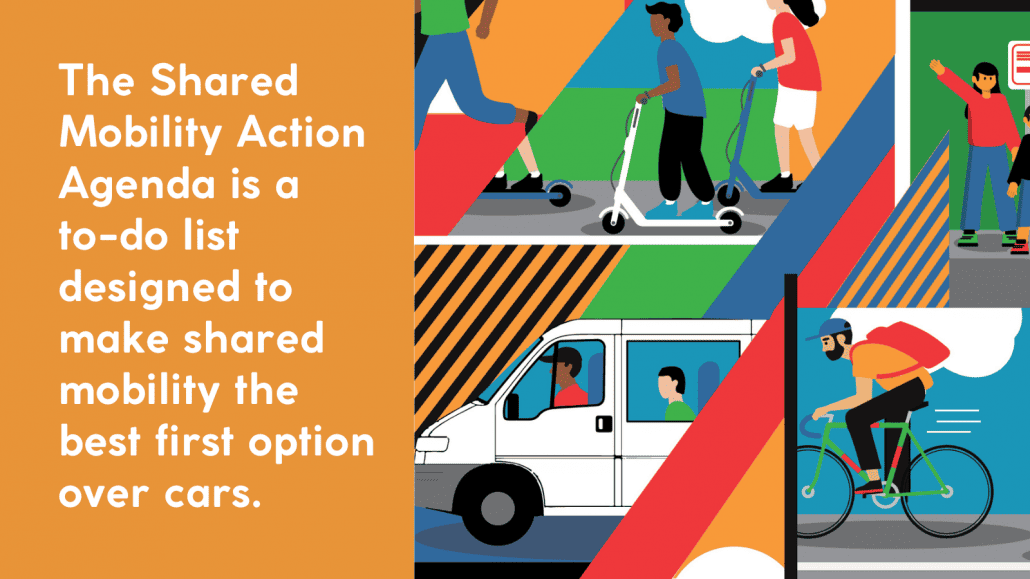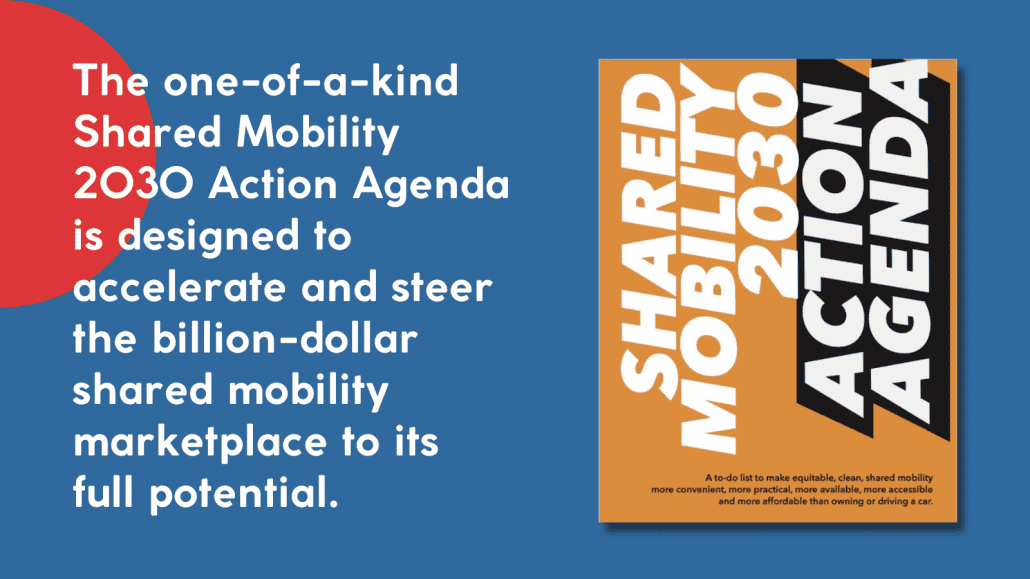RideAmigos Proudly Announces its Participation in the Shared Mobility Action Network

RideAmigos is pleased to confirm its official participation in the Shared Mobility Action Agenda, a project headed by Chicago’s Shared-Use Mobility Center. Thus far, the Agenda has drawn in more than 50 partners from the public, private, and nonprofit sectors.
The Agenda’s broad goal is to make shared modes of transportation more accessible, reliable, and affordable than driving a car by 2030. It plans to achieve that core objective through focused, policy-based advocacy efforts centered on:
- Shared mobility infrastructure investments
- Household-focused incentive programs designed to stimulate mode shift
- Reducing the carbon lifecycle emissions of shared-use vehicles
- Developing sustainable funding models for shared mobility action
- Inspiring institutional change
RideAmigos shares the Shared-Use Mobility Center’s view that we are currently in a critical and pivotal moment for the future of sustainable transportation. Reshaping our urban spaces and road networks to prioritize people over cars has the potential to address a long list of pressing and persistent problems, from climate change to racial inequality.
The success of the Shared Mobility Action Agenda depends on the robust and committed participation of government, private industry, and nonprofit advocacy groups.
Why Is Action on Shared Mobility So Critical?
Several eye-opening statistics point to the pressing need for targeted and effective shared mobility action:
- About 30% of all U.S. carbon emissions come from the transportation sector. Even a mass-scale shift to electric vehicles will not do enough to address this issue — after all, that electricity has to come from somewhere, and many legacy power generation methods still depend on fossil fuels.
- The lowest-income households in the United States spend 37% of their gross income on transportation. Affordable shared solutions are desperately needed to connect members of these households to educational and employment opportunities that support their upward economic mobility.
- More than 35,000 people die in traffic accidents each year in the United States. Members of racialized communities, including Black and Native Americans, lose their lives at two to four times the rate of non-Hispanic white Americans.
By taking cars off the road and putting people in shared modes, we could make major steps toward solving these and many other transportation-related problems.

Projected Impacts of the Shared Mobility Action Agenda
Making even partial progress on the Shared Mobility Action Agenda’s goals by 2030 will result in dramatic improvements in multiple critical areas:
- Families and households, especially those in lower income brackets, will benefit from easier and more direct access to low-cost, reliable, and efficient shared modes of transportation.
- All levels of government will make a deeper, more meaningful commitment to reducing the carbonization consequences of the transportation sector.
- Our transportation infrastructure will more directly support socioeconomic and racial equality.
- Advocacy organizations and nonprofit groups will have a high-impact, far-reaching platform for voicing community-based concerns and addressing unique community needs.
The Shared Mobility Action Agenda will also make our streets safer and less vulnerable to traffic accidents and fatalities, all while bringing an expanded suite of mobility options to millions of Americans living in rural destinations.
RideAmigos Reinforces Shared Mobility Objectives Through Its TDM Platform and Commuter Programs
RideAmigos redoubles its commitment to improving shared mobility access through a powerful transportation demand management platform and insightful, science-driven commuter programs.
The RideAmigos platform provides employers and commuters with powerful tools they can use to launch and manage effective TDM programs. Its capabilities include strong and complete support for shared mobility solutions, including public transportation, company rideshare programs, and community-wide transportation initiatives.
RideAmigos also helps clients design, refine, and launch effective commuter programs that draw heavily on proven insights from the field of behavioral science. As a result of our scientific focus, our programs tend to generate higher participation rates and succeed more readily at inspiring commuters to make long-term changes to their transportation habits.
To learn more, please contact RideAmigos.



Leave a Reply
Want to join the discussion?Feel free to contribute!